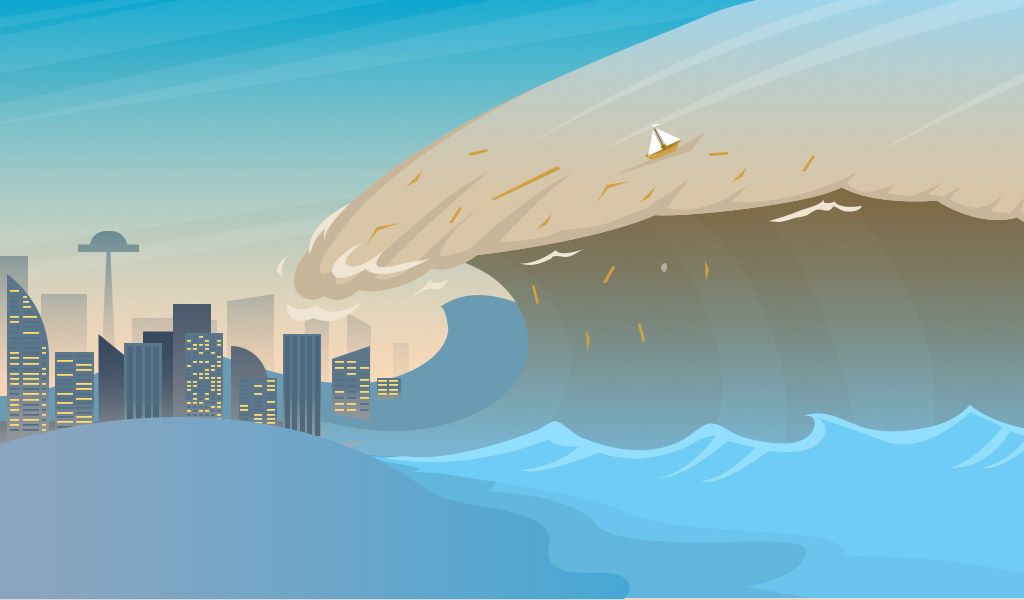Small business disaster recovery after hurricane Florence – what can help you stay on board?

40% of small businesses won’t be reopening after hurricane Florence. Moreover, up to 25% of them will likely have to closedown within a year of it passing. Every business needs to have a continuity plan for instances of natural disasters. Up to 75% of affected small business may be forced to close within three years due to the aftermath. How can you avoid being one of them?
Hurricane season happens every year, that’s why it’s crucial for business owners to understand the potential risks of it. If your business is vulnerable to hurricanes, understanding how it can impact you will allow you to develop a mitigation plan. This is crucial for enabling your business to resume operations after natural disasters. Some of the more common natural disasters we tend to see in the US include:
- Floods
- Hurricanes
- Volcanic eruptions
- Tornadoes
- Earthquakes
Keep your data safe
According to the U.S. National Archives & Records Administration, 60 percent of companies that lose their data are out of business within six months of being hit by a natural disaster. If your business is paper-based, we recommend transitioning to paperless processes so that you can store all your documents and records in an unlimited cloud storage service.
Export data you’ve collected with your forms to any device with SignNow. All of your signed and completed documents can be automatically exported from SignNow to your Google Drive, Dropbox, Box or Egnyte account. If you want your business to make it through floods or hurricanes, consider switching to cloud-based documentation workflows.
By the way, don’t forget about any paper archives if your company has them. Scan and convert your invoices, purchase orders, customer and vendor contracts to electronic format. In case of a disaster or emergency situation, you and your employees will always have remote access to any document.
In case of a disaster or emergency situation, you and your employees will always have remote access to any document.
Stay in touch with your clients
Weather disasters go hand-in-hand with power outages – this includes a non-existent or unstable internet connection. No matter if you’re a one-person operation or a huge business with hundreds of employees, you need to maintain contact with your clients. SignNow understands this all too well. Using the SignNow app, you can sign and accept e-signatures from your mobile device even while offline.
Add legally-binding e-signatures to your documents from any iOS or Android device. As soon as your device gets a Wi-Fi connection, documents are instantly sent out for e-signing. This may come in handy if you don’t have access to your personal office. All you need is a single mobile device in your pocket to keep your business and contact with clients going, no matter if your internet connection is unstable.
First things first – secure your company
Here’s a short list of items that should be prepared ahead of time:
1. Have a savings account to cover your expenses for at least 30 days after disaster strikes. That’s the average amount of time it takes to complete insurance claims and undergo the process for repairs.
2. Review your insurance coverage. Many general policies allow insurance companies to escape having to completely pay for flood or other weather-related catastrophes. Take time to consult with your insurance agent and make sure that your business will be fully covered after a natural disaster has passed.
3. Develop a continuity plan. The national project Ready suggests business owners build their continuity plans in four steps:
- Conduct a business impact analysis
- Develop recovery strategies
- Work with your team to develop a formal plan
- Educate your employees about the plan and train them on their responsibilities

It is critical for all small business owners to develop a practical and workable disaster recovery plan. The more prepared your business is, the more likely you are to reopen and stay in business after weather-related catastrophes.

